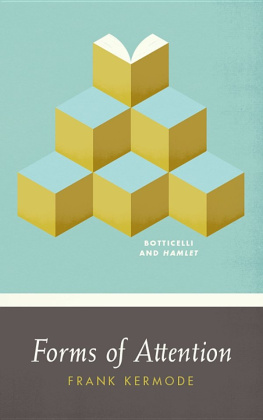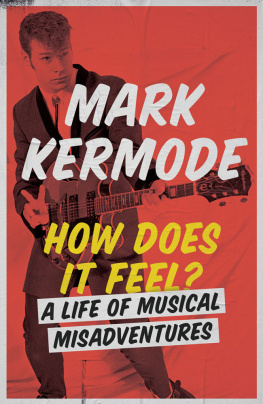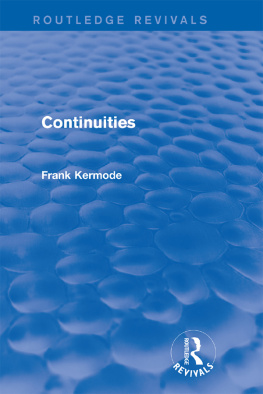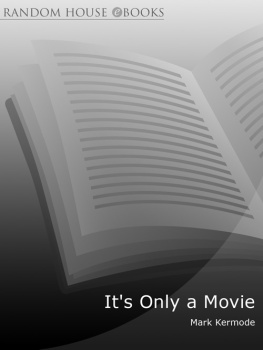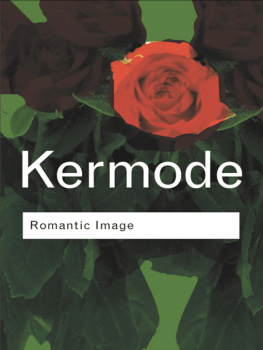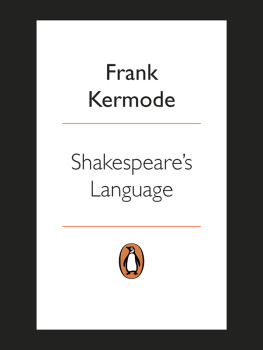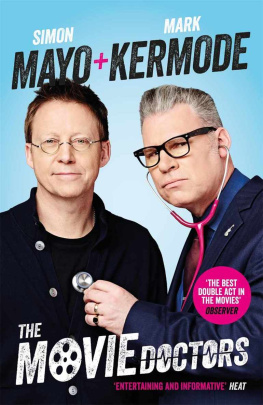Frank Kermode - An Appetite for Poetry
Here you can read online Frank Kermode - An Appetite for Poetry full text of the book (entire story) in english for free. Download pdf and epub, get meaning, cover and reviews about this ebook. year: 1989, publisher: A&C Black, genre: Politics. Description of the work, (preface) as well as reviews are available. Best literature library LitArk.com created for fans of good reading and offers a wide selection of genres:
Romance novel
Science fiction
Adventure
Detective
Science
History
Home and family
Prose
Art
Politics
Computer
Non-fiction
Religion
Business
Children
Humor
Choose a favorite category and find really read worthwhile books. Enjoy immersion in the world of imagination, feel the emotions of the characters or learn something new for yourself, make an fascinating discovery.

- Book:An Appetite for Poetry
- Author:
- Publisher:A&C Black
- Genre:
- Year:1989
- Rating:3 / 5
- Favourites:Add to favourites
- Your mark:
- 60
- 1
- 2
- 3
- 4
- 5
An Appetite for Poetry: summary, description and annotation
We offer to read an annotation, description, summary or preface (depends on what the author of the book "An Appetite for Poetry" wrote himself). If you haven't found the necessary information about the book — write in the comments, we will try to find it.
An Appetite for Poetry — read online for free the complete book (whole text) full work
Below is the text of the book, divided by pages. System saving the place of the last page read, allows you to conveniently read the book "An Appetite for Poetry" online for free, without having to search again every time where you left off. Put a bookmark, and you can go to the page where you finished reading at any time.
Font size:
Interval:
Bookmark:
Essays in Literary Interpretation
FRANK KERMODE

As bad luck will have it, there are among these men with no great appetite for poetrywho dont understand the need for it and who would never have invented itquite a number whose job or fate it is to judge it, discourse upon it, stimulate and cultivate the taste for it; in short, to distribute what they dont have. They apply to the task all their intelligence and all their zealwith alarming consequences.
Paul Valry
For John Hollander
What am I to do, what shall I do, what should I do, in my situation, how proceed? By aporia pure and simple? Or by affirmations and negations invalidated as uttered, or sooner or later? Generally speaking. There must be other shifts. Otherwise it would be quite hopeless. I should mention before going any further, any further on, that I say aporia without knowing what it means. Can one be ephectic otherwise than unawares? I dont know.
Samuel Beckett, The Unnamable
It might be thought that a collection of this kind should appear on its own, with at most a brief account of the provenance of its constituent pieces. I sympathize with that austere view of the matter, but once again feel obliged to do a little more than it would allow. An earlier collection, The Art of Telling, seemed to require a longish apologetic prologue; it contained essays on the criticism of narrative, and on questions about canons and institutions, some of which depended on methods and assumptions that appeared to conflict with those endorsed by esteemed contemporaries. Hence the need for some preliminary argumentation. It is a need that has grown much more acute over the past few years.
In The Art of Telling, and also in an earlier book, The Genesis of Secrecy, I was trying to do what William Empson held to be the right thing for critics, namely to follow my own nose, occasionally scenting value in certain modern techniques and theories, but never becoming their slave or their expositor. Possibly it was this measure of detachment that prevented my understanding the full extent of certain claims made on behalf of Theory, and notably that of the claim for its supremacy, which, in its simplest form, maintains that the primary use of literature, however defined, is to serve the needs of Theoryindeed, that the only reason for continuing the study of literature is that it can be pressed into this service.
I daresay it was my interest in such matters as the institutional Smith observed that it has taken us a long time to perceive that value is the central issue in modern criticism. But it is so; and it cannot be separated from the issue of canon, now no longer ignored, but instead seriously misunderstood.
Believing this, I had myself published a little book called Forms of Attention
The purpose of these remarks is not advertisement or autobiography; I am only trying to suggest that some enduring preoccupations are reflected in parts of the present book, and also that since they differ so sharply from what is becoming the received wisdom I ought to deal more expressly with this conflict in these introductory remarks. Indeed, given the present critical climate, I almost feel it necessary to explain why other parts of the book show no interest in these fashionable problems, being about literature and not about theory. The fact is that I believe, against much influential opinion, that literary criticism should not be wholly or even principally a matter of rigorous investigation into what criticism is and does. Critics have a duty to interpret as well as to study the modes and fallacies of interpretative performance. They have equally a duty to evaluate, and to transmit interpretations of value (but not prescriptive valuations), as well as to make and study theory.
To continue a moment longer in this apologetic mode, I will add that over the period covered by these essays, roughly 1974 to the present, I have also written a great many reviews, some brief, as newspapers generally require, but some, appearing mostly in the generous pages of The London Review of Books, as long as many of these essays, and sometimes, as might be expected, displaying similar interests. Reviewing of this more ample and perhaps more serious sort is, in my view, as important as any other kind of literary criticism, and academics who think it an interference with graver matters need to give some thought to the whole question of the wider literary public on whose existence their own, with its mandarin privileges, must depend. However, there is only one essay in this book which appeared first as a review: it is the chapter on Empson, and I wanted to include it for the following reasons. First, at a time when there are so many models and techniques that can be got up and assiduously applied, there are individual and eccentric gifts which remain the prerequisite of the best criticism; and Empson possessed them in the degree of genius. Second, there are at the moment attempts to enlist him posthumously in the ranks of a theoretical avant-garde; one sees why, but he does not belong there, and would have said so with his customary asperity and emphasis. It seems desirable to resist this kidnap attempt.
As Empson and many other more ordinary practitioners would have had no trouble in admitting, a normal critical career will contain many occasions for nontheoretical performances. There are festive or ceremonial occasions, such as the three hundredth anniversary of Miltons death, which the poets college and university might well be expected to celebrate without deconstructive rigor; the current professor of English Literature in the university, called upon to do his part, would have caused much displeasure by devoting his hour to an examination of what that part was, and what must be the flaws in tricentennial rhetoric. He was very properly expected to say something about Milton. On the hundredth birthdays of Wallace Stevens or of T. S. Eliot it still seemed appropriate to discuss these poets as the authors of admired works, held to constitute a valuable oeuvre. And there might be other occasions to speak about literature without first asking at length what it is to speak about literature, or whether there is really such a thing to speak about. There are specialist audiences, audiences of specialists in fields other than literature, and audiences not properly specialist at all; and to speak sensibly to all such audiences remains, I think, the normal obligation of the professional critic. It should not be despised or neglected on the ground that one has more interesting things to do than talk about books and authorsfor example, to demonstrate the uses of semiotic, narratological, psychoanalytical, or neohistorical models, though in themselves such demonstrations may be absorbing, life-enhancing, or at least career-enhancing. For it should be realized that the consequences of not doing this normal work are likely to be grave. Walking through the Life Sciences building at UCLA recently, I noticed affixed to a laboratory door the following words: Les thories passent. Le grenouille reste.Jean Rostand, Carnets dun biologiste. There is a risk that in the less severe discipline of criticism the result may turn out to be different; the theories will remain but the frog may disappear. Criticism seems to be in rapid decline, and is by many thought moribund, and all the better for that. But if we use the term in a different and now increasingly dominant sense, we can say that more literary criticism is now being written than ever before, and of a kind that is thought by many to be more valuable, more intelligent, and more exciting than any before it. I have a difficulty here. Although much of this new criticism is indeed intelligent and, to sympathetic readers, exciting, it is often the work of writers who seem largely to have lost interest in literature as such (the question of what that is I defer for a moment). It is not merely that they deplore earlier types of criticism and want to replace them with something that will do their work better; for the program contains instructions to annihilate them, and also to destroy the end they had in view, which, however ineptly they performed the task, was to deepen understanding of literature, and to transmit to others (including non-professors) interpretations and valuations which could and would be transformed or accommodated to new conditions as time went by. Anyway, it strikes me as worth observing that this great efflorescence of literary theory seems to entail an indifference to, and even a hostility toward, literature.
Font size:
Interval:
Bookmark:
Similar books «An Appetite for Poetry»
Look at similar books to An Appetite for Poetry. We have selected literature similar in name and meaning in the hope of providing readers with more options to find new, interesting, not yet read works.
Discussion, reviews of the book An Appetite for Poetry and just readers' own opinions. Leave your comments, write what you think about the work, its meaning or the main characters. Specify what exactly you liked and what you didn't like, and why you think so.

